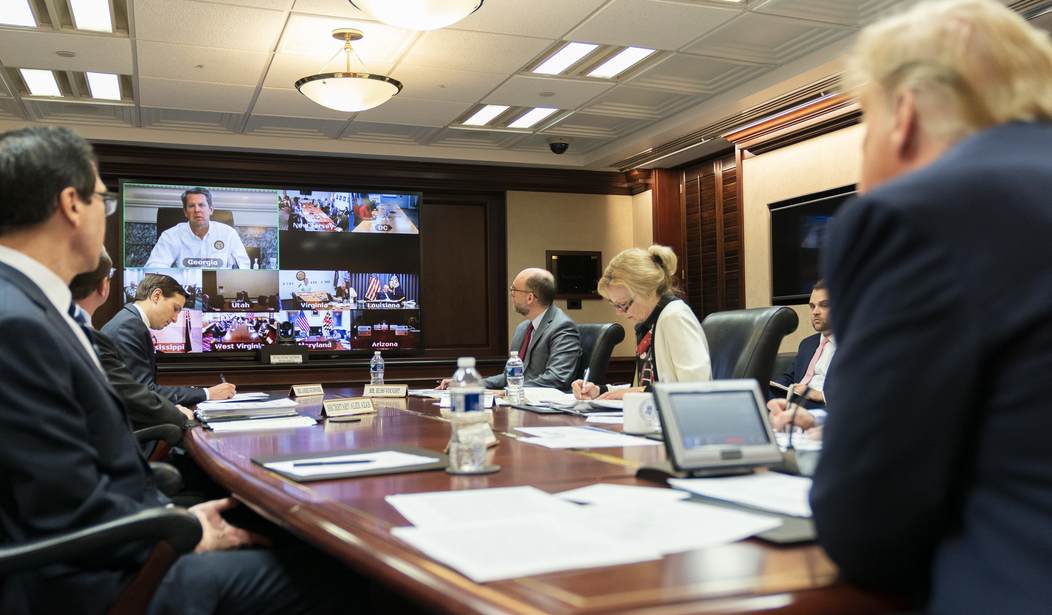For all of the complaining that we hear about Washington, D.C. these days, you might think that this would be a fairly popular idea. And who knows? Maybe it will be. The subject at hand is a new bill introduced by Republican Congressman Warren Davidson of Ohio named the “Drain the Swamp Act.” It proposes a fairly drastic change to how the federal government is organized and how it operates. It’s a concept that would previously have been unthinkable as well as being a violation of federal law. Davidson wants all federal agencies to essentially clear out of Washington, moving their headquarters elsewhere and leaving no more than 10% of their workforce inside the Beltway. He wouldn’t be doing away with all of the agencies, however. Just forcing them to locate to someplace physically removed from the swamp. (Government Executive)
A Republican lawmaker this week introduced a measure to force all federal agencies to relocate out of the Washington, D.C., area, saying it would help incorporate more perspectives into federal policymaking.
The 2021 Drain the Swamp Act (H.R. 5712), put forward by Rep. Warren Davidson, R-Ohio, would require all federal agencies to submit a plan within one year to move their headquarters out of Washington. The Office of Management and Budget and General Services Administration would have to approve the plans, which would be implemented by September 2026.
Under the new restrictions, only 10% of an agency’s workforce could remain in Washington. The measure would direct agencies to maximize cost savings and consider national security implications of their moves. The bill would repeal the current section of federal statute that requires agency headquarters to be in Washington.
As I already mentioned, this idea would have been unthinkable not all that long ago and will probably still receive considerable resistance today. In previous times, all of these agencies needed to be centrally located so people could attend meetings and get their jobs done. There is even a federal statute requiring federal agencies to have their headquarters in the Capital region. (That statute would be repealed as part of this bill if it were to pass.)
But as the old saying goes, that was then and this is now. We have emerged from all of the weirdness that kicked off early in 2020 into a world where people were forced to explore the possibilities of remote or virtual work and collaboration. It may not be everyone’s cup of tea, but particularly for administrative functions (as opposed to manufacturing and other “hands-on” work), it’s clearly proven to be viable.
This isn’t to say the agencies wouldn’t still have offices where people could work together in person. They absolutely could. They would just be located in other parts of the country. But any interagency meetings and collaborative sessions could be done via Zoom calls or similar technology. Documents could be finalized with electronic signatures rather than ink on a piece of paper. And maybe… just maybe… the traffic on the Beltway wouldn’t be such a hellscape anymore.
There are other benefits to this idea as well. The cost of living in Washington is insanely high. Federal workers have to receive a premium of up to 15% to offset it. If you spread all of these agencies around the nation, many could wind up in cheaper areas to live and we’d be saving money immediately. As a bonus, if you dragged some of the swamp creatures out of the liberal bastion of D.C. to spend some time living in the real world, the federal government might not be such a cloistered progressive stronghold and could be more representative of the country at large.
A move like this could also turn out to be a huge financial boon to all of the places where the agency headquarters wind up landing. There would be plenty of jobs and housing values would likely rise. Spreading around all of that federal largesse that currently goes up in smoke in D.C. to communities that have been bled dry by shifts in manufacturing and other employment areas would provide a big boost in many areas.
Of course, people tend to hate change and that’s particularly true in Washington. Despite all of the obvious advantages a plan like this offers, I’m confident that the creatures in question will rush to defend their swamp and keep the status quo in place. Still, it’s a pleasant subject to dream about for a while.









Join the conversation as a VIP Member